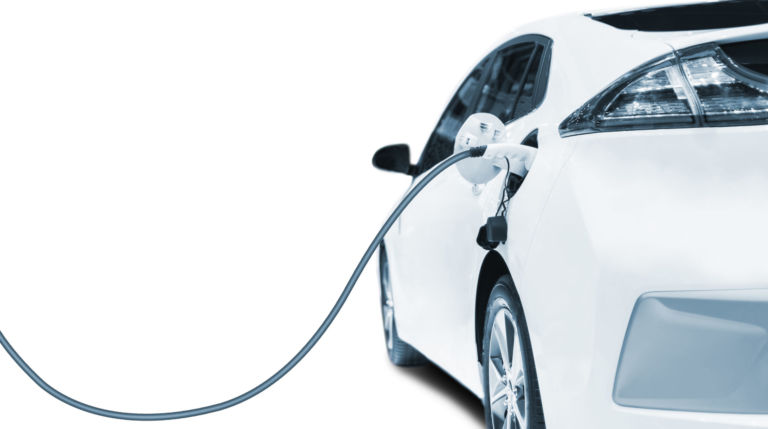At a recent Senate hearing, climate experts claimed it would cost $50 trillion to make the country carbon neutral—and then admitted that it may not even work. Though the U.S. could sink trillions and trillions into green initiatives, it may not move the needle at all when it comes to temperatures.
There’s nothing wrong with wanting to keep the planet in the healthiest state that we can. From recycling and forest and ocean management to responsible fishing, hunting and farming, all play a role in keeping food on the table and the global economy rolling. But certain climate activists want to take it further.
In order to avoid what they believe could be a catastrophic outcome, climate activists testifying before the Senate want the country to essentially bankrupt itself by spending an additional $50 trillion, when the country already has a ballooning debt of $31 trillion, to try and achieve the seemingly mythical carbon neutral status by 2050.
However, when pressed about the success of this method during a Climate-Related Economic Risks and Their Costs to the Federal Budget and the Global Economy committee hearing by Senator John Kennedy of Louisiana, they all admitted that the United States could financially destroy itself with no impact on global temperatures at all.
Senator Kennedy begins by questioning Dr. Douglas Holtz-Eakin, president of the American Action Forum, a center-right policy think tank that advocates for a “50-52 percent economy-wide reduction of net greenhouse gas emissions below 2005 levels by 2030,” about the cost of the potential move towards carbon neutrality and the possibility of success.
“If we spend $50 trillion to make the United States of America carbon neutral by 2050, how much will that lower world temperatures,” Senator Kennedy asks.
Dr. Holtz-Eakin pauses and shakes his head before responding, “I can’t answer because it will depend on what China and India and the globe has done.”
“Have you heard from anybody in the Biden administration say how much it will lower world temperatures?” Senator Kennedy pressed again.
Dr. Holtz-Eakin takes another long pause, before answering simply, “No.”
“Does anybody know how much it will lower world temperatures,” Senator Kennedy asks. When Dr. Holtz-Eakin doesn’t respond, so Kennedy answers himself, “No.”
“No one can know for sure,” Dr. Holtz-Eakin finally answers.
Kennedy moves on to another witness, asking, “If we spend $50 trillion or however much it takes to make the United States carbon neutral by 2050, how much will it lower world temperatures?”
Dr. Robert Litterman, Chair of the Climate-Related Market Risk Subcommittee U.S. Commodity Futures Trading Commission, responded, “Senator, that depends on the rest of the world. We have to work with the rest of the world, we’re in this together. It’s one world, we can’t build a wall around the United States…”
“What if we spend $50 trillion, Europe cooperates, most Western democracies cooperate, but India and China don’t. How much will our $50 trillion lower world temperatures?” Senator Kennedy asked again.
“We’re in this together, Senator, we have to get the world to work together,” Dr. Litterman responds.
“I get that.”
“Okay.”
“How much will it lower world temperatures?”
“If China and India do not help?” Dr. Litterman clarifies.
“Yes.”
“I don’t know.”
This exchange is a great example of how some demand action, change and billions if not trillions of dollars, without knowing if any of it will be effective. And if the United States makes itself weaker on the international stage with a foolhardy, untested and reckless plan, how can we hope to ever encourage China and India to follow our lead?
It’s obvious that any aggressive action towards carbon neutrality should be tempered with the global realities of our limited role in reigning in other countries, beyond our allies in Europe.
Similar questions could be posed to Gov. Cooper when it comes to some of his green initiatives.
Will a massive wind turbine farm off the coast of North Carolina damage tourism while producing no noticeable additional power to the electrical grid? Will adding solar panel farms result in more failures after a hurricane, as the sun exposure is limited and the technology breaks under the impact of hurricane force winds? Will forcing most North Carolinians to purchase electric cars result in an overloaded electrical grid that consistently fails during the coldest and hottest days of the year? And despite increasing energy costs and working towards a carbon neural state, will all of this effort and money fail to have any kind of real result on the environment and temperatures?
That’s what people should be asking Gov. Cooper and any politician advocating for massive change in pursuit of the carbon neutral dream that may be as fanciful as searching for El Dorado. A pointless effort that causes infinitely more damage that it ever addressed.


